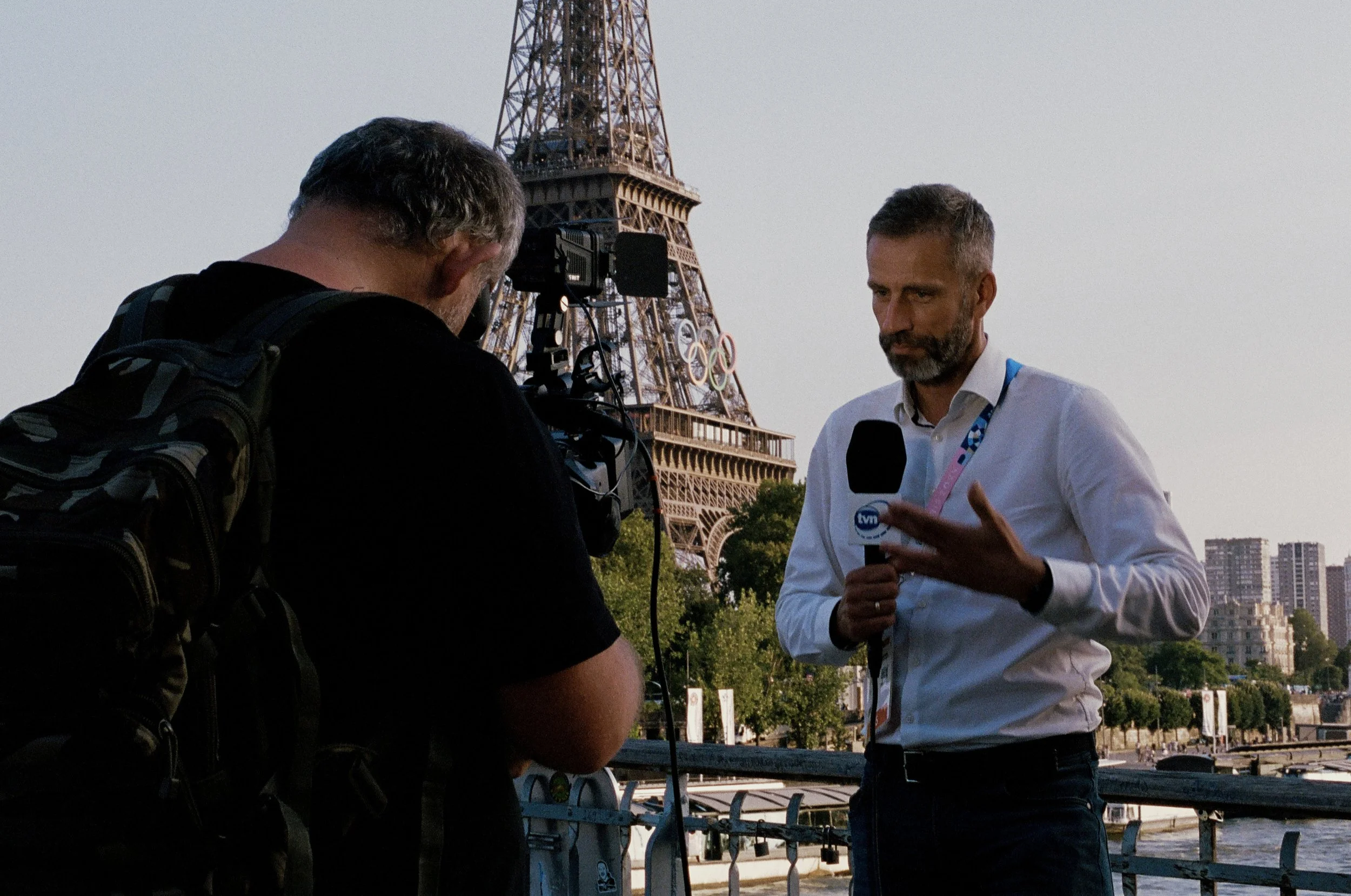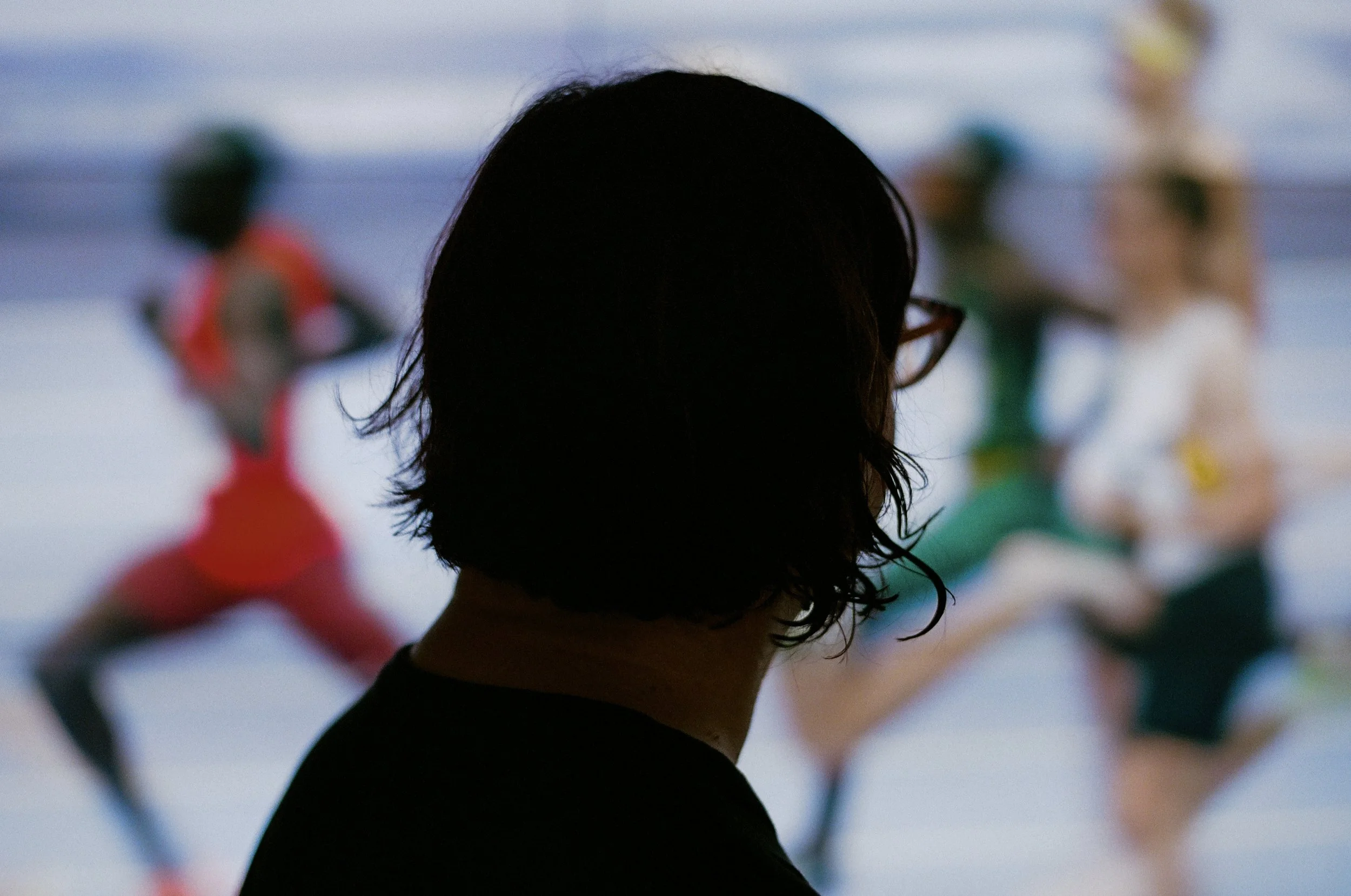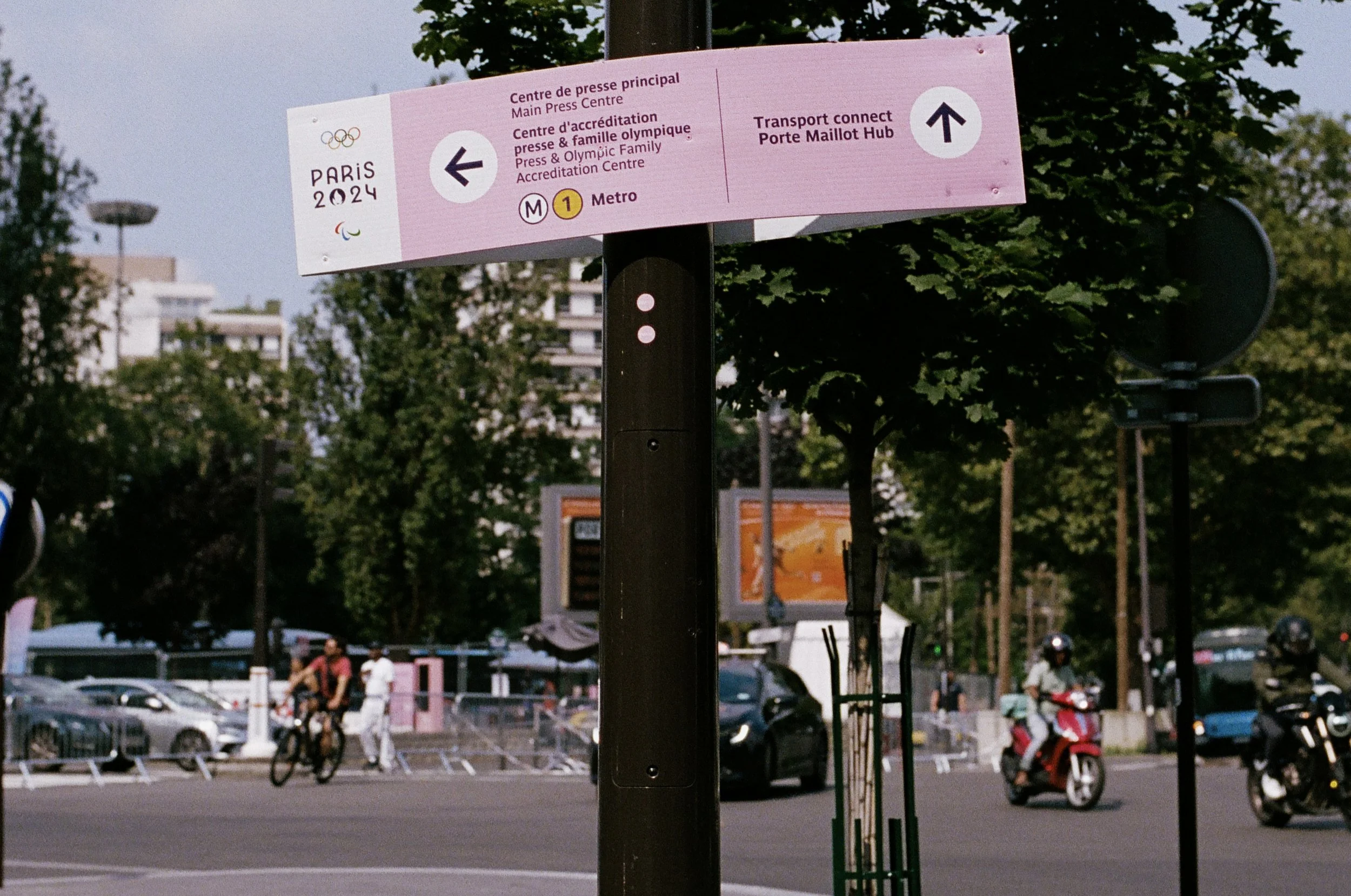Lens on Equality: How Journalism, Technology, and Identity Shape the 2024 Paris Olympics
A journalist reporting updates in front of the Eiffel Tower during the 2024 Paris Summer Olympics.
In the midst of the 2024 Paris Olympic Games, it is impossible to ignore the impact that social media has had on spreading content related to the games themselves, as well as the societal conversations surrounding them.
Journalists have always played a significant role in reporting on sports events, and the Olympic Games are no exception—if anything, the expectation is even higher. I spoke with one of these journalists at the Olympics’ “Main Press Centre,” commonly referred to as the “journalism village.”
Ina Fried is an American journalist with a wealth of experience. Previously working for CNET and currently for the prominent media network Axios, one of her primary subjects is the rise of technology in our current social spaces.
We sat in a dimly lit break area specifically for journalists. The tables resembled a high school cafeteria, and the man across the table typed vigorously while occasionally glancing up at the mounted television screen broadcasting the live event. She told me that this year’s Paris Olympic Games were not her first; she has attended multiple Olympic events throughout her career. The 2020 Tokyo Olympics particularly stood out to her, largely due to the impact of COVID-19 on its execution.
During the Tokyo Olympics, she heavily reported on the recurring theme of conflicts faced by transgender athletes in sports. She mentioned to me, “Some athletes come from countries like the United States where they’re not at risk for their lives, but other athletes come to the games and can’t feel comfortable sharing their gender and sexuality.”
She exposed the harsh realities that many transgender athletes endure due to societal prejudices and assumptions. These judgments, especially prevalent outside the United States, come with severe consequences, influencing certain athletes to keep their true identities hidden to protect themselves, their families, and their reputations.
When discussing the rise of technology in relation to the Paris Olympics, Ina emphasized the cold materiality that artificial intelligence relies on.
“There are positives and negatives,” she explained. “If they’re not collecting information about LGBTQ+ individuals, then we’re not represented in the output.”
One line that fascinated me was when she posed a crucial question: “Are LGBTQ+ people going to be represented, and if we are, is it stereotypical or not?”
Ina also mentioned that many people used as data by machine learning models are unaware that their information is being collected. She pointed out that in today’s society, many do not consider how artificial intelligence and algorithms might use their latest Instagram or Twitter post in ways that could negatively impact culture as a whole.
“Misinformation is huge, and it can be weaponized by people who want to spread it,” said Ina Fried, the Chief Technology Correspondent at Axios.
Ina also discussed how advertising and marketing have become more strategic over the last few years. She noted that today, it can be difficult to discern what is product placement and paid content versus what is genuine and authentic. “Countries with bigger budgets and better facilities already have such an advantage,” she explained, a sentiment I found myself agreeing with wholeheartedly.
Among all these challenges, being a transgender journalist itself presents its own hurdles. There are judgments, both positive and negative, that can impact your career in ways beyond your control.
As an example, Ina shared her frustration about missing the opportunity to capture photography at the 2024 Olympics, saying, “One of the things a journalist might struggle with is making content unique enough. It’s difficult this year for many journalists to be forced to sit at the top of the stadiums and take pictures with their iPhones when they really want to be right up there in the action.”
One final piece of inspiring advice she provided that describes her journalistic process is that she approaches her stories with “open eyes, an open heart, and goes where the story leads.”
Talking with Ina was both eye-opening and refreshing. Having such an in-depth conversation with another journalist who passionately explores the layers of technology and equality, all while maintaining a strong, upbeat energy, is rare—especially at a major international event where everything could be on the line.
There are many intense interactions happening among journalists and athletes at the Olympics this year. Discussions range from the lack of comfort provided to those competing to journalists being pressured to conform to certain presentations. It has never been more essential to ensure that information is spread accurately.
Busy streets surround the 'Main Press Centre' sign at the 2024 Paris Summer Olympics.
Traveling around Paris as a newcomer presents its own set of challenges. There is a stark decrease in the number of familiar faces and places. Being in an international environment requires a different mindset, and the unfamiliarity of it all can be overwhelming for many.
While the Olympic Games have been preparing for these two specific weeks of summer sports, the rapid rise in technology during this time has been nearly impossible for them to keep up with. Despite this, they have attempted to find some peace through partnerships with companies like Samsung, which has provided athletes with their own Samsung devices to use. The marketing strategies at the Olympic Games are deeply ingrained and often unavoidable.
These challenges are not new and certainly not exclusive to Paris. With Los Angeles preparing for the 2028 Summer Olympics, one begins to wonder how different life might be by then and, conversely, how it will remain the same. What can the Olympics do to change the climate and response to ensure safety for transgender athletes? How can transgender journalists find their way into a career path with more stability and promise? Most importantly, how do we protect those who are being taken advantage of?


